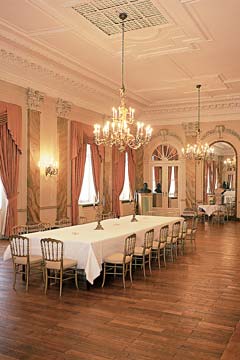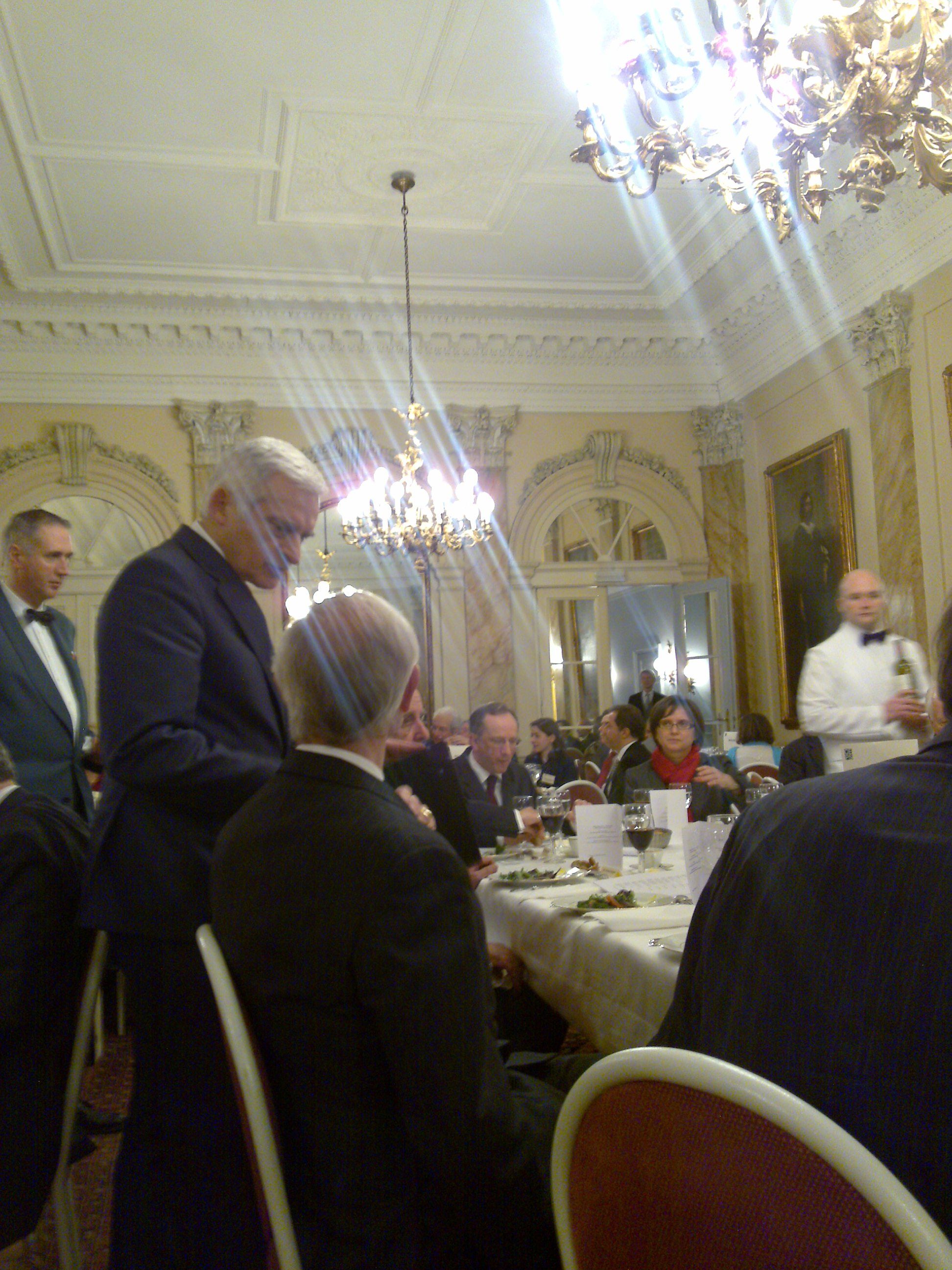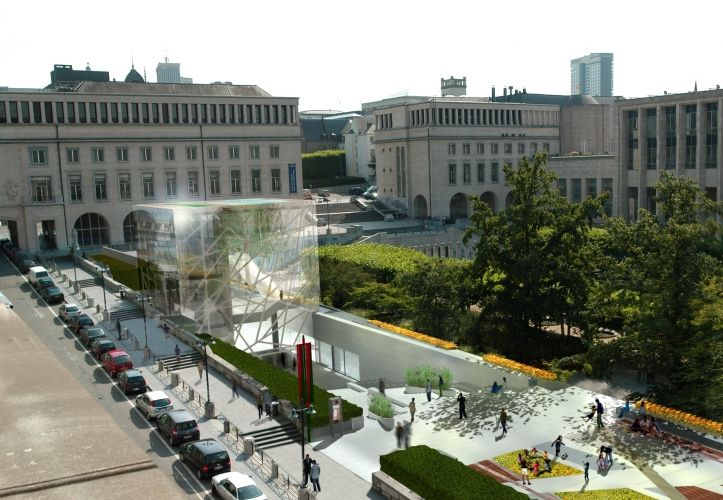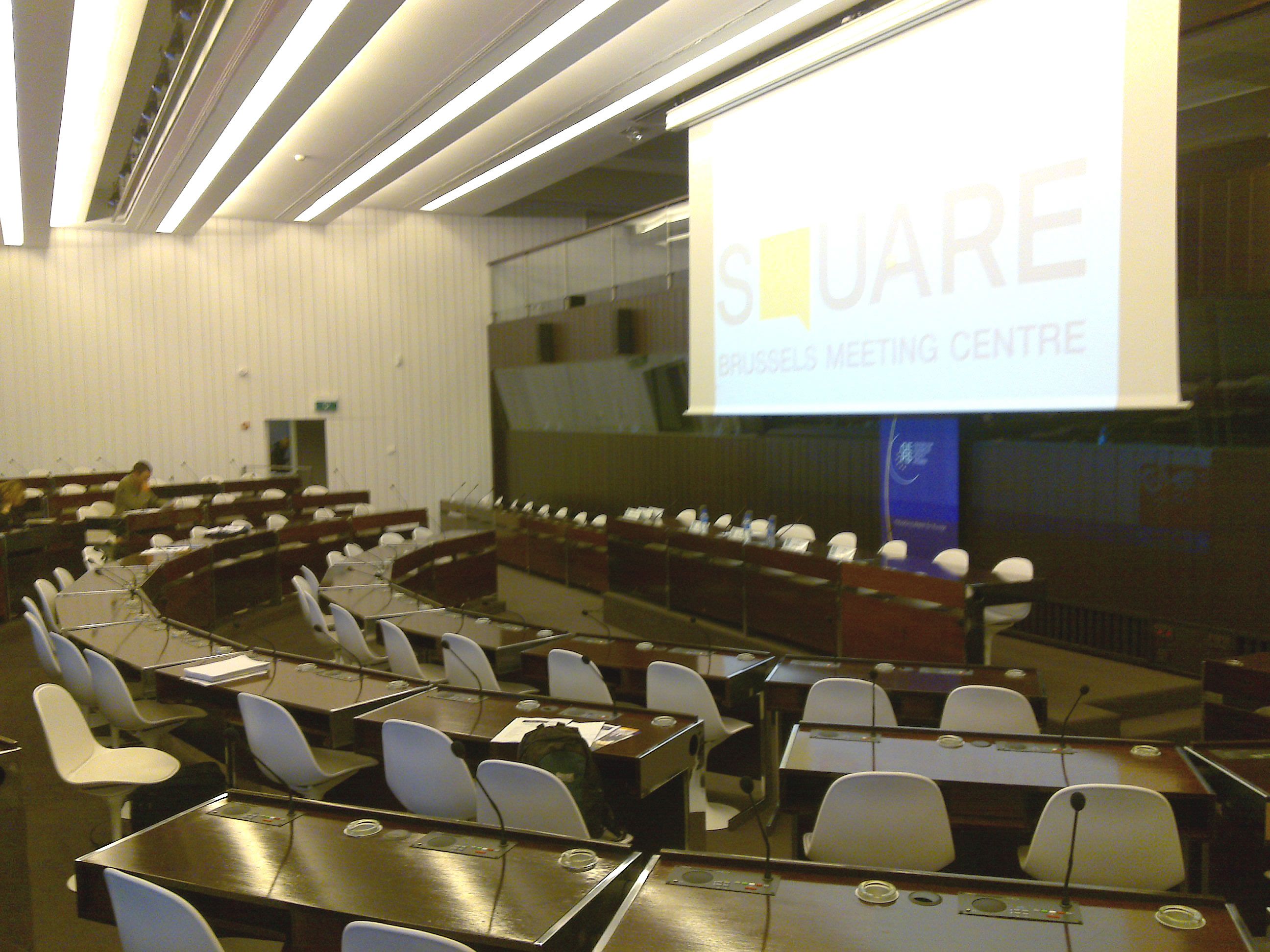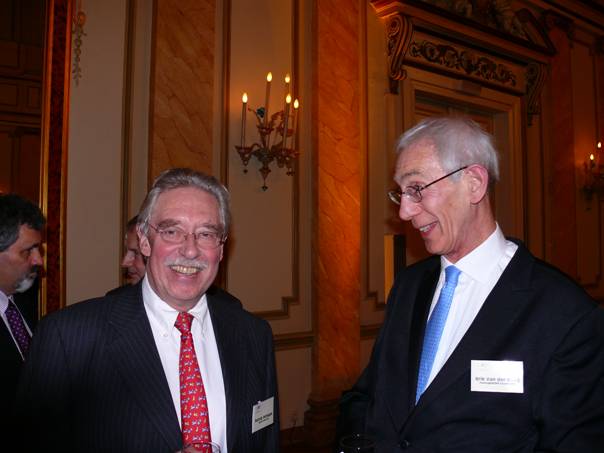| Speech by Professor Jerzy Buzek, President of the European Parliament to the Centre for European Policy Studies (CEPS)
Brussels - Thursday, February 25, 2010
Dear Onno Ruding,
Dear Daniel Gros,
Dear Colleagues,
Dear Friends,
Thank you for inviting me to address you this evening. I much appreciate the honour and opportunity to join you for your annual dinner.
I wish, if I may, to address you on a topic I find particularly important - energy policy and energy security. I will, of course, be delighted to answer any questions on this - or indeed any other topic -
Ladies and gentlemen,
As you may know, I have been arguing for quite some time that we need to strengthen our cooperation in the energy sector.
During my very first speech as President of the European Parliament in September last year, I suggested that we might create some kind of 'European Energy Community'.- a new 'EEC'. I also have raised this question with heads of state and government at the last two meetings of the European Council.
I know that this is a highly sensitive topic, because energy is very much seen as integral to national security, and therefore it touches directly on issues of national sovereignty. But I believe that in an increasingly globalised world, we are no longer sovereign when it comes to issues of energy.
Secondly, as Daniel Gros from CEPS has pointed out, we have to ask whether the interests of big energy companies - say, EDF, RWE or BP are necessarily the interests of France, Germany or the United Kingdom ? If protecting national champions was our policy, then we would never have managed to complete the Single Market?
Dear Friends,
Europe is faced with competition from other parts of the world, competition for access to scarce resources.
The EU 27 currently uses about 15% of the energy resources of the world. The United States consumes 19% and China 16%. By 2030, our energy consumption will probably have increased by over 10%. At a global level it will have increased by 45%.
Europe's import dependence continues growing - it will reach 67% in 2030, up by 14 % from today's level. In twenty years time, we will be importing 95% of our oil and 84% of our natural gas.
It is clear that, whatever happens, we will need to continue with diversification of energy. We should invest more in domestic sources, in renewables such as wind and solar power. Nuclear power will be part of the mix, as will be the second generation of cleaner fossil fuels.
The EU has committed itself to promoting a series of large scale energy interconnectors. But where is the money going to come from? We will have to make some hard choices.
Can the individual member states any longer afford the billions of euros which will be needed to build the ambitious energy infrastructure of the 21st century? An infrastructure based not only on pipelines but also on smart grids.
Equally, is it still rational or efficient to conduct 27 bilateral negotiations with oil and gas producers? I do not think so.
I have always argued for the "Community method". Even when I was Prime Minister, and Poland was a candidate country. I think energy is a clear case where a European strategy, and a joint European solution - a Community solution - makes sense.
Dear Colleagues,
A Community shares certain values, customs and habits. It is a high-trust society. We need such trust if we are to pool sovereignty and make common decisions for investment, or purchasing, in such a sensitive area. We have to trust that there will be solidarity not only when things go well, but also when they go less well - when we are faced with a crisis.
Ultimately, our citizens do not care who is responsible for energy supply, provided the lights work when they switch them on. And they do not want to pay large sums of money for that privilege every month !
How could such an Energy Community look like in practice, and what has to be done to achieve this?
A lot of work has already been done on this issue by Jacques Delors and his Notre Europe think tank in Paris. They will publish an important report on the topic within the coming weeks.
I believe a step by step approach needs to be taken.
For a start, we could create an oil and gas purchasing group. This would speak with one voice to the outside world. Countries which are members would be able to negotiate joint supply contracts, better share the gas and oil delivered, and start to built a joint stocking and transport infrastructure.
Secondly, we should encourage regional integration among member states, or groups of member states, to create cross-border energy links and connectors.
Third, more importantly, somebody has to take political ownership and show genuine leadership on the issue.
How we face these challenges, individually or as a Community, will only determine how successful we will be.
Ladies and Gentlemen,
What about institutional arrangements? I believe that a variety of options are possible.
Perhaps, we could negotiate a separate treaty involving all the member states. This Community could be part of our European Union, but existing alongside it as a separate,entity, like Euratom today.
Or perhaps we could do this through enhanced cooperation. On this basis, a sub-group of member states would go ahead further and faster than the rest. Such a possibility is provided for in Article 20 of the Treaty and could be triggered by as few as nine member states.
Or we could try simply to work within the new Article 194 of the Lisbon Treaty, which gives some, limited, new competences to the Union in the energy field.
Whatever solution we find, I believe that this European Energy Community must have an opt-in to allow all member states to join when they are ready. This is nothing new: we currently have it with Economic and Monetary Union and with the European Defence Agency.
Dear Friends,
A European Energy Community could give us the advantages of economy of scale both internally, but also outwards, towards the rest of the world.
Internally, it could help the member states to invest in the hugely expensive grids and infrastructure we need to complete the single market in energy.
It would also help release funds for research and development in areas such as green technologies and renewables, as well as for greater efficiency of existing technology.
It would also create greater legal certainty for our energy companies, giving them the right incentives for long term investment. They need to hear a clearer message from the European institutions about where we wish to go in the field of energy, over the next twenty to thirty years.
Externally, the economies of scale offered by this initiative create a powerful trading bloc. This in turn could enable us to negotiate common purchases of oil and gas, reducing the overall prices of those fuels.
Dear Colleagues,
These are some of the issues we need to grapple with as we think about deepening our European cooperation in the field of energy policy.
It has been a privilege and a pleasure to be able to share some of my initial thoughts with you - as we start this discussion - tonight.
A Chinese philosopher once said that you have to study the past to divine the future.
Sixty years ago this May, the French foreign minister, Robert Schuman, called for a pooling of sovereignty in the core heavy industries of the mid-20th century: coal and steel. We must be just as bold in our thinking, during this anniversary year of the Schuman Declaration.
We need to start thinking about the possibility of a greater pooling of our sovereignty in the energy sector of the 21st century.
We need to think seriously about creating a European Energy Community.
Thank you. |
